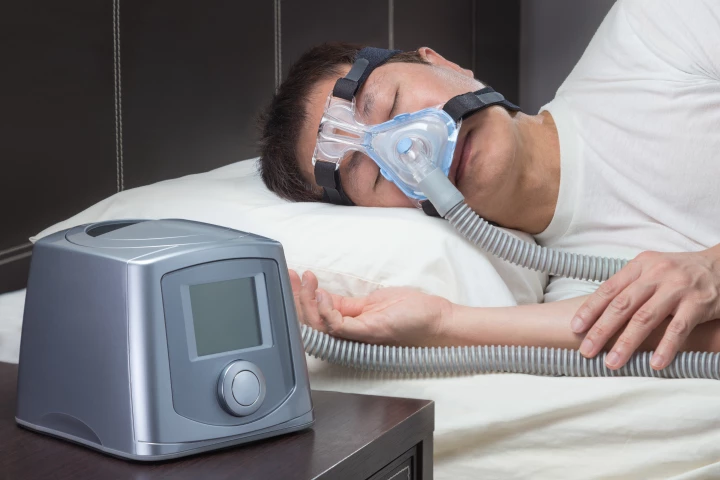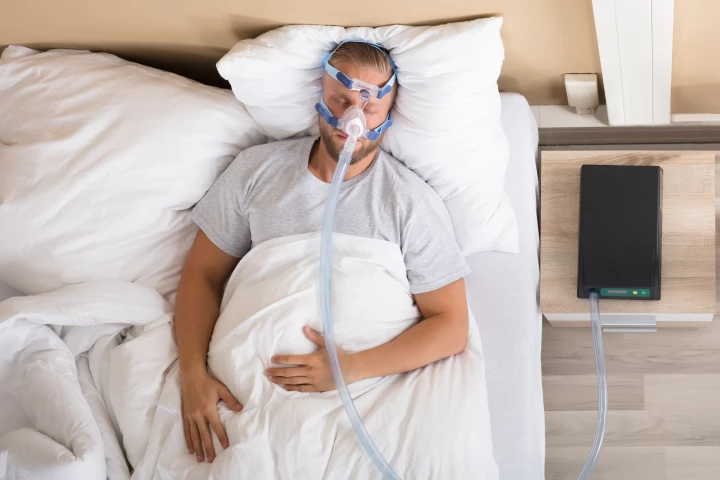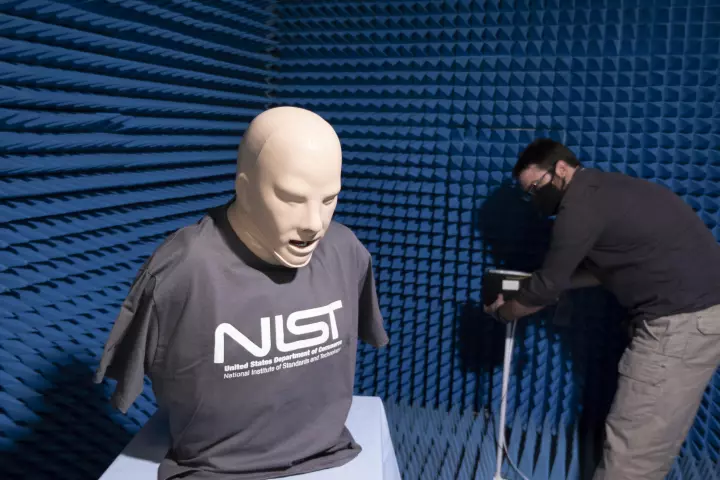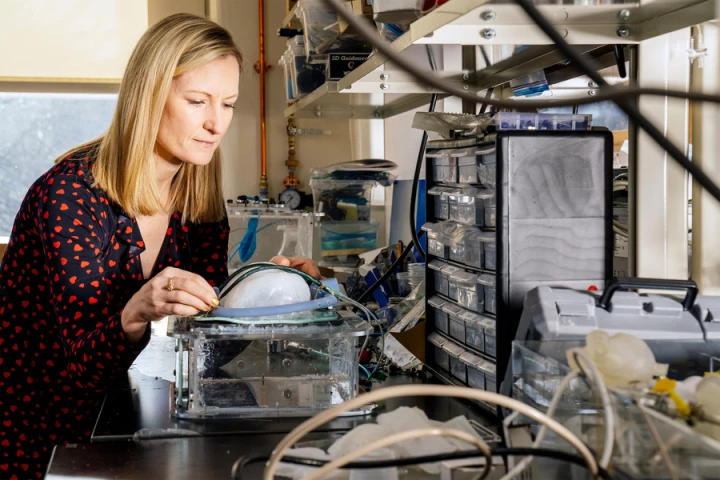Breathing
-
Just like fingerprints, your breathing patterns may be unique. Scientists found they can identify people using only breathing patterns. And it's not just identification, researchers can predict BMI, and anxiety or depression from the way you breathe.
-
While a stethoscope will tell you if someone has a respiratory ailment, it will only share that info in the few minutes it's being used. A new device could paint a much bigger picture, by monitoring the patient's breathing for days at a time.
-
In a bid to revolutionize Alzheimer’s detection, scientists have examined the brain’s neurovascular unit. The research revealed not only how this system is altered by the disease, but also found distinctive breathing patterns in affected individuals.
-
A humble little lizard has developed a clever escape route from predators – it blows a bubble over its nostrils and scuba dives to safety for 20 minutes or more. Now, a biologist has explored exactly how it works.
-
When a respiratory patient's COPD flares up, the outcome can be highly debilitating – potentially even fatal. A new wearable known as the Sylvee is claimed to detect such exacerbations early, so they can be dealt with before it's too late.
-
Breathing exercises – in which a person takes slow, deep breaths – have been shown to reduce stress and anxiety. Focusing on breathing in this manner can be difficult, however, which is where the PAWS "breathing ball" is designed to come in.
-
While effective in treating sleep apnea, continuous positive airway pressure (CPAP) machines are intrusive and disruptive, which is why 50% of patients give up on using the life-saving devices. A new study shows why they might be worth the discomfort.
-
One of the most common treatments for sleep apnea involves wearing an air mask while sleeping, which can be awkward and uncomfortable. A new study, however, suggests that a simple TENS muscle-stimulating system may actually work better.
-
Sleep apnea affects around 30 million Americans, but it can be incredibly difficult to treat, even more so given that devices used to alleviate it are given up on by nearly half of those diagnosed. Scientists are now proposing a different approach.
-
Researchers have created a device that uses photonic radar to remotely and accurately monitor breathing, even distinguishing between more than one patient. The device might one day be used in hospitals, aged care facilities, prisons, and at home.
-
By modifying an off-the-shelf Wi-Fi router with a firmware update and using a deep-learning algorithm, scientists have been able to detect breathing patterns that indicate respiratory distress in a medical mannequin.
-
It's a sad fact that people with conditions such as muscular dystrophy and ALS often have difficulty breathing, as their diaphragm muscle doesn't work properly. MIT scientists have set out to give that muscle a boost, with an implantable ventilator.
Load More











